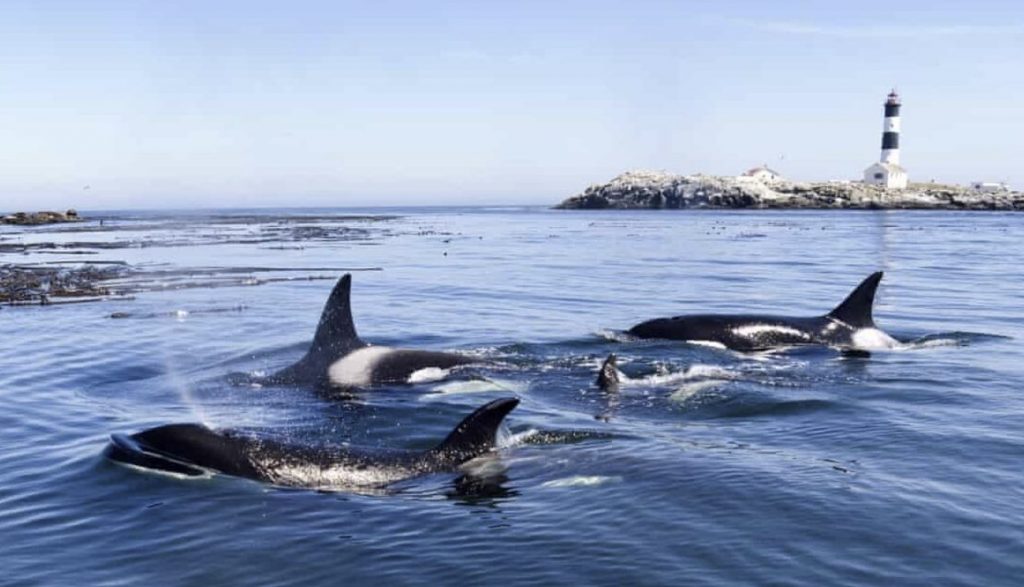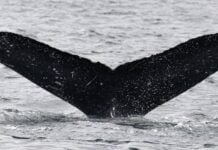Reports of orcas striking sailing boats in the Straits of Gibraltar have left sailors and scientists confused.
Just what is causing such unusually aggressive behaviour?

When nine killer whales surrounded the 46ft boat that Victoria Morris was crewing in Spain on the afternoon of 29 July, she was elated. The biology graduate taught sailing in New Zealand and is used to friendly orca encounters.
But the atmosphere quickly changed when they started ramming the hull, spinning the boat 180 degrees, disabling the autohelm and engine. The 23-year-old watched broken bits of the rudder float off, leaving the four-person crew without steering, drifting into the Gibraltar Straits shipping lane between Cape Trafalgar and the small town of Barbate.
The pod rammed the boat for more than an hour, during which time the crew were too busy getting the sails in, readying the life raft and radioing a mayday – “Orca attack!” – to feel fear.
The moment fear kicked in, Morris says, was when she went below deck to prepare a grab bag – the stuff you take when abandoning ship. “The noise was really scary. They were ramming the keel, there was this horrible echo, I thought they could capsize the boat. And this deafening noise as they communicated, whistling to each other. It was so loud that we had to shout.” It felt, she says, “totally orchestrated”.
Very unusual orca behavior
The crew waited a tense hour and a half for rescue – perhaps understandably, the coastguard took time to comprehend. To say this is unusual is to massively understate it. By the time help arrived, the orcas were gone. The boat was towed to Barbate, where it was lifted to reveal the rudder missing its bottom third and outer layer, and teeth marks along the underside.
Rocío Espada works with the marine biology laboratory at the University of Seville and has observed this migratory population of orca in the Gibraltar Straits for years. She was astonished. “For killer whales to take out a piece of a fibreglass rudder is crazy,” she says. “I’ve seen these orcas grow from babies, I know their life stories, I’ve never seen or heard of attacks.“
Highly intelligent, social mammals, orcas are the largest of the dolphin family, and behave in a similar way. It is normal, she says, that orcas will follow close to the propeller. Even holding the rudder is not unheard of: “Sometimes they will bite the rudder, get dragged behind as a game.” But never with enough force to break it. This ramming, Espada says, indicates stress. The Straits is full of nets and long lines; perhaps a calf got caught.
More attacks in the Gulf of Gibraltar
But Morris’s was only one of several encounters between late July and August. Six days earlier, Alfonso Gomez-Jordana Martin, a 31-year-old from Alicante, was crewing a delivery boat near Barbate for the same company, Reliance Yacht Management. They were proceeding under engine when a pod of four orcas brought their 40ft Beneteau to a halt.
He filmed them – it looks more like excitement and curiosity than aggression – but even this bumping damaged the rudder. And the force increased, he says, over 50 minutes. “Once we were stopped, they came in faster: 10-15 knots, from a distance of about 25m,” he remembers. “The impact tipped the boat sideways.“
The skipper’s report to the port authority said the force “nearly dislocated the helmsman’s shoulder and spun the whole yacht through 120 degrees.“
At 11.30pm the previous night, 22 July, Beverly Harris, a retired nurse from Derbyshire, and her partner, Kevin Large, were motor-sailing their 50ft boat, Kailani, just off Barbate at eight knots, when they came to a sudden standstill. It was flat calm, pitch black.
They thought they’d hit a net. “I scrambled for a torch and was like, ‘Bloody hell, they’re orcas,’” says Harris. The couple checked their position and found the boat pointing the opposite way. They tried to correct several times, but the orcas kept spinning them back. “I had this weird sensation,” Harris says, “like they were trying to lift the boat.“
It lasted about 20 minutes, but felt longer. “We thought, ‘We’ve sailed across the Atlantic, surely we’re not going to sink now!’” Their rudder was damaged but got them to La Línea. It was a long night. “Kevin said I should get some sleep. I said, ‘Are you joking? I’m having a gin and tonic,’” recalls Harris.
While enjoying her drink, Harris could have spared a thought for Nick Giles, having a sleepless night alone after an almost identical encounter off Barbate just two and a half hours earlier. He was motor-sailing, and playing music when he heard a sudden bang “like a sledgehammer.”
The wheel was “turning with incredible force” as the vessel spun 180 degrees, dislodging the autohelm and steering cables. “The boat lifted up half a foot and I was pushed by a second whale from behind,” he says. While resetting the cables, the orca hit again, “nearly chopping off my fingers in the mechanism.” He was pushed around without steering for about 15 minutes before they left him.
So what is going on underwater? Sonar? army tests? If human activity is affecting the orcas’ behaviour, human activity must be regulated. Activities producing underwater noise should be reduced to a minimum.
Read more at The Guardian. More strange animal behavior on Strange Sounds and Steve Quayle.













Perhaps the Orcas didn’t like people in their territory. Perhaps people irritate them. I sympathize with them.